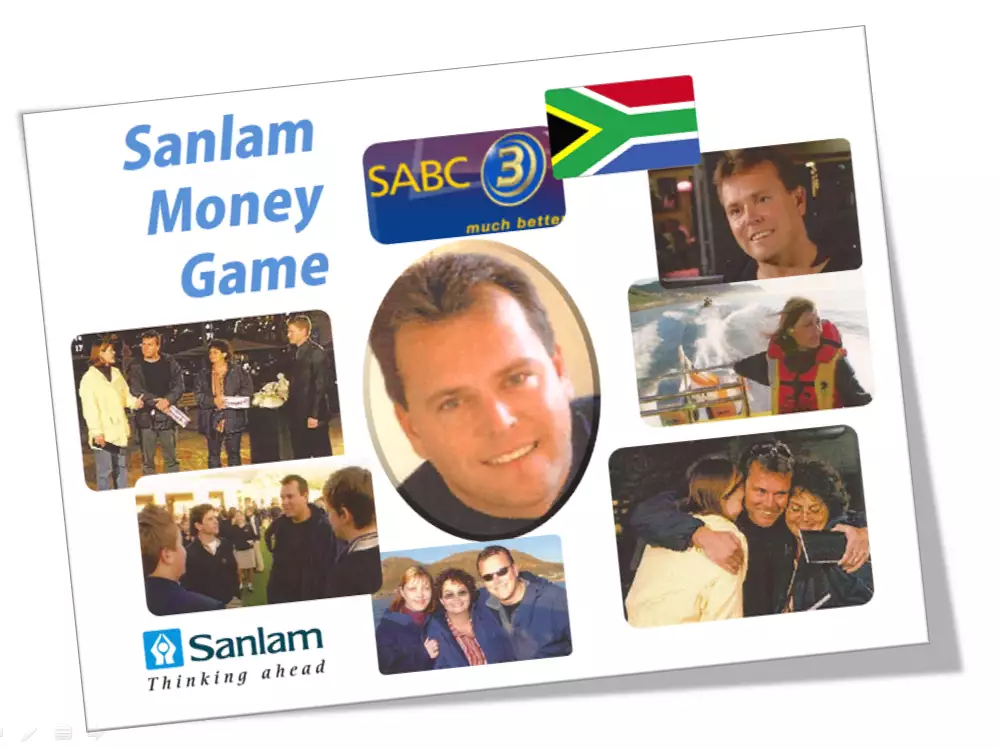
Follow these rules for the perfect phone call...
Effective business telephone calls in English are not as difficult as you think, as Robert Dennis explains…
Are you afraid of using the phone in English? Do your hands start to shake when you dial a telephone number and know that you will have to not only speak in English – but also understand the other person? And would you rather send (= Would you prefer to send) an email in order to avoid (evitare) the situation completely? Well, you are not alone. Millions of non-native speakers of English face exactly this situation every day – often at work and in high stress environments, where there is no alternative to talking on the phone.
But using the phone in English doesn’t need to be a nightmare (incubo). If you follow the simple suggestions described below – and learn some of the key business telephone expressions included in section 2 of this article – you will soon find that making phone calls in English is one of the simplest and most direct ways of communicating with your clients, customers or other colleagues.
Steps to making the perfect business phone call
Stop! Take your hand off that receiver (cornetto). Before you pick up the phone… PREPARE! Get yourself ready first – and you will find it much easier to make that important business call. Here’s a checklist of things you can do before you phone someone:
1. Write down the main points that you want to discuss with the person you are going to speak to.
These don’t need to be long notes – in fact, it’s better that you don’t write whole sentences, as you will sound as if you’re reading from a script. (Think of those telephone calls you get from banks and other large companies where an operator sitting in a call centre reads from a long prepared script. It’s like talking to a robot, isn’t it?) Just jot down (write quickly) a few bullet points – single words and short phrases are best. For example:
Contact: Chris Hemming, HKR Communications:
• New designs for brochure
• Printing – how much? When?
• Payment – euros or pounds?
Having these notes in front of you – even if they’re just written on a yellow Post-It™ will help you to focus on what you want you want to say and enable you to structure the conversation.
2. Create the perfect telephoning conditions, if possible.
Get everything ready before you phone. If you’re in a noisy (rumoroso) office, try and find a quiet place where you can make the call. Ideally (perfectly) in a room where you can shut the door to keep background noise to a minimum. Try and choose a time to call when you know the other person will not be in a hurry and has time to speak. (Avoid phoning at awkard (difficult) times, such as early on Monday morning and late on a Friday afternoon. Think about it: would you be happy if someone phoned you during these periods?) Have a pad (blocco noti) and a pen in front of you (with your notes from point 1, above). (You may find it useful to write down words and phrases that the other person says as you are trying to understand them. You can then use these to help form your own replies and questions). If you need to discuss a proposal, design or similar document with the other person, it’s much easier if you both have it on your desk in front of you. You can then refer to the appropriate pages, paragraphs or details that you need to talk about. Send an email with your document attached and ask the other person to print it out or have it open on their PC when you call. Arrange a suitable time to speak so that you can both get ready. (Even for two native speakers, this can save a lot of time.) Spending a short amount of time creating a relaxed, well-ordered phoning environment will be worth the effort (vale la pena) when you are in the middle of the call.
3. Rehearse (provare) the call. You can either do this silently in your head, or (preferably) speaking out loud (ad alta voce). (Of course, you will probably want to do this when no one else is around – or you may find your colleagues are slightly worried (ansiosi) that you are under so much stress that you are talking to people without actually (really) using the telephone!) Think about what you will say, the type of reply you will receive and any possible points or questions that could come up (happen) during the conversation. If you know there are some tricky (difficult) names or technical words that you will have to say, practice them before you ring (phone) the other person. Be ready to spell long or difficult words. (e.g. If you need to tell someone that the project meeting will be in Domodossola, think of words that you can use to spell this out over the phone: “D as in Difficult, O as in Orange, M as in Manchester”, etc.). If you are giving someone a number, such as phone number or account number, get the other person to repeat it back to you. Of course, if there is any really important written information that you need to pass on (give) or receive, tell the other person you will send an email (and don’t forget to send it) – or get them to send one to you.
4. Take a deep breath.
If it’s a really important, make-or-break call, get yourself physically ready. Do some deep breathing exercises before you speak. (Breathe in, count slowly to five, breathe out, repeat two or three times.) You will then find you start the call in a Zen-like state of calm (peaceful relaxation), even if you start to find yourself struggling (lottando) as the call progresses. Have a drink in front of you – when you get stressed your throat (gola) can dry out – which can make you sound even more stressed. Even if it’s only a bottle of mineral water, keep some liquid nearby so you can take a few sips (sorsi) when the other person’s speaking. (A drink’s OK, if you can swallow (inghiottire) quietly, but never eat or chew gum while you’re speaking on the phone – the receiver (microtelefono) amplifies the sound and it’s like talking to a cement-mixer (betoniera) – plus, it can make you more difficult to understand.)
Go ahead and dial
Right, so we’ve looked at how you can prepare for that big call you need to make. Now, let’s consider some survival strategies you can use to help you to help you make it to the end of conversation.
• Put yourself in control
If you phone someone up – using the suggestions in the previous situation – you will automatically be in a better frame of mind than if the other person calls you when you are not ready or in the middle of something else. If it’s a really bad time (for example, the fire alarm has just gone off or your boss (capo) is standing in front of you with a long list of figures that need to be checked (controllato) immediately) ask the other person if you can call them back. (You might even decide to use this as a ruse (stratagemma) so that you can make sure you are 100% (per cent) ready, even if you have to tell a white lie (bugia pietosa), e.g. you’re just about to go into a meeting, but you’ll phone them when you come out.
• Get the other person to slow down
This can be more of a problem if you’re talking to a native speaker: non-native speakers of English know that it is difficult to communicate in a foreign language – particularly on the phone. However, a native English speaker, particularly someone who has little experience of talking to foreigners, may not realise this. Trying to understand a British or American person rabbiting on (parlare a vanvera) at high speed (a tutta velocità) can be incredibly frustrating. Why not tell the person you are speaking to at the beginning of the call that you do speak English, but you sometimes find it a bit tricky (difficult) to understand everything, so it would be a lot easier if they spoke a little (more) slowly. If the other person starts to speed up during the conversation (which is what usually happens), gently remind them to slow down. If you communicate with the same person on a regular basis they will eventually learn to do this automatically when they speak to you, but you need to train (addestrare) them at the beginning.
• Ask the other person to repeat something if you don’t understand
Don’t assume that if you miss (non cogliere) something it probably isn’t that important anyway: it may be the most important thing in the conversation! If you suspect that you haven’t heard something properly – or you simply haven’t understood – ask the other speaker to say it again or to explain. (If you have to do this repeatedly, try and make a joke (scherzo) of it – getting the other person to co-operate is much easier if you keep the tone of the conversation light-hearted (allegro) and friendly. You can still do this and remain professional. Indeed, the more serious or complicated the topic is, the more important it is to make sure that you are both communicating as effectively as possible – and it’s much easier to communicate with someone you like – and who likes you. If you don’t understand a word or phrase because of the way the other person is saying it, try asking them a question like “Sorry, did you say envelopes?” or give them a choice: “Er, sorry, was that thirteen (13) or thirty (30)? I didn’t quite catch what you said.”)
• Check that you both understand and agree on what has been said or decided
It’s surprising how often (even in your native language) you think you’ve said one thing, but the other person has understood something completely different. Even if (or especially if) the two speakers are highly educated, intelligent people, they can get their wires crossed (capirsi male, literally: incrociare le file). At the end of the conversation, summarise what you have agreed or check to see what the other person thinks you have said:
So, are we agreed, them? I’ll send over the designs to your office and you can decide which one you want – and that you’ll confirm that in writing?
– Yes, that’s right.
Focus on action and outcomes (risultati)
You don’t normally phone people up at work just for a chat – and if you do, you probably know the other person very well anyway, so anything important you have to communicate can be done in a fairly relaxed way. Contacting someone you don’t know very well (if at all) in a foreign language, particularly when you are already under stress from other factors (such as deadlines (scadenze) or a bad phone line) demands that you have an effective approach. The key to making a successful business telephone call is to focus on what you want to achieve – on the practical result (or results) of the call. Before you call, ask yourself these questions:
• Why you are making this call?
• Are you talking to the right person?
• What do you want that person to do after the call?
• What do you need to do?
• Does the other person need any more information? Do you?
• Is there any other way you could achieve the same result without making the call?
Why you are making this call?
Be clear about why you are calling. If you are phoning to ask someone whether they have finished the report you need, stick to that topic – don’t be tempted to introduce another point simply because you have that person on the line. If you cannot resist, hint (accennare) that you need to talk about the other topic later and then phone them again on a different occasion, or send an email. (Remember: information is like whisky: its effect is more powerful when it’s neat than when it’s diluted.)
Are you talking to the right person?
If you need a decision, talk to the decision maker whenever possible. Spending an hour explaining your proposal to an assistant may, at best, result in the information being passed on more or less successfully, or the other person simple might explain that they have to ask their boss. Even then, you could find yourself having to repeat everything you said when you finally talk to the person who can give you a definite “yes” or “no”.
What do you want that person to do after the call?
A business telephone call is a little bit like writing a good computer program. You have to have a clear objective – an output or goal – at the beginning, and everything you say during the call should lead (menare) to this objective. If you want someone to send you something, then make sure that you tell them what they have to send, exactly who and where it has to go and when you want it by. Failing to give all the necessary information will only result in delays or unnecessary follow-up calls (or emails) and requests for the name, address or date that wasn’t given during the call.
What do you need to do?
If you tell someone that you will send details of the agreement today, then send details of the agreement today. The longer you wait between hanging up and hitting the send button on your email, the less likely it is that the other person will act promptly (prontamente) and the more likely it is you will have to speak to them again and re-check what you have already agreed.
Does the other person need any more information? Do you?
Put yourself in the position of the person you are communicating with. If they want to contact you later, do they have all your details (phone, mobile (cellulare), address, etc)? Anticipate the other person’s needs or difficulties. Give them your direct number or extension (assuming you do want them to contact you again directly on the phone). If you have referred to a document or web page, send them the exact title or link so they can find it easily.
Is there any other way you could achieve the same result without making the call?
Ask yourself if this is really the best way of communicating with someone. Yes, speaking on the phone is the most direct means of communication, but there can also be many distractions – especially if the other person – or you yourself – are already pre-occupied with another task. A well-written email is often more effective than a phone call – and it also has the advantage that it can be referred to whenever the reader (or you) needs to check the information it contains. You certainly can’t do this (easily) with a phone call, unless you record (and transcribe) all your calls! Quite often the best way to communicate in business is to send someone a clear, well-structured email, follow it up with a brief call (even if it it’s just to check they have received – and read – the email). And then send a short follow-up email (a line or two) confirming in writing the action(s) you have agreed during the call.
Now you’re fully prepared mentally and physically – and with a clear phone strategy – you need some juicy (succoso, vantaggioso) business telephone phrases to make your call as professional and effective as possible. Read the next section, which contains a comprehensive range of useful language to help you achieve your results…
Note: the business telephone phrases in secton 2 of “Make that call!” will soon be available as premium content or to students taking professional business courses with Robert Dennis. (That’s enough free content…)
Share and Enjoy

































